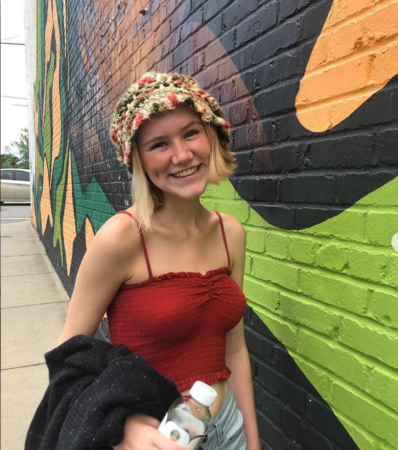By Ashley Denchfield
CAYLA intern
As we return to school during these unprecedented times, I can’t help but reflect on the life-changing events of 2020. As a young person witnessing history, I think about how this moment will be taught to future generations. I also think about how my generation has been taught about history.
Today’s students sit in U.S. history class, bellies full from free breakfast, a program founded by the Black Panther Party, learning the relentlessly whitewashed version of America’s history. As a rising senior, I have experienced this rubric throughout a multitude of different history classes. I’ve attended seven different schools in several different areas. Each year, I enrolled in a different history class; yet, each class had one thing in common: a rewritten history lesson. The erasure of Black, Indigenous, and People of Color (BIPOC) history is painfully blatant in school systems around America. Students are required to take European history, while African American history is an elective- if the school offers it at all.
While students engage in a plethora of history classes throughout their 12 years of schooling, lessons regarding Black, Indigenous, and People of Color are inadequate. We spend entire units studying the feudal system in Europe, but never a full day discussing Jim Crow laws. We are quizzed on trivial matters such as King Henry VII’s six wives, but never spend a moment speaking of African queens. My peers and I have spent days learning about the hysteria of the Salem Witch Trials, but never a mention of the Dakota 38, the largest mass execution in the United States. We speak of Manifest Destiny but fail to mention the mass slaughter of buffalo — which furthered the genocide against Indigenous communities. We spend a month learning about the American Revolution, but not an hour discussing the beginnings of convict leasing, redlining, the war on drugs, and mass incarceration. We spend time learning about the Civil War but do not learn about the promise of reparations and the painful history around these Confederate monuments. Regardless of where we are in the world or U.S. history, a white-centric history is ingrained into students’ minds.
Over the years, I have become more and more grateful to be a part of the “Internet generation.” While we may be spoon-fed the whitewashed curriculum’s version of history, we can reject it. Gen Z has grown up with immense information available at our fingertips and the capability to connect with people from across the globe. Together, with the help of generations before us, we have the power to innovate, lead, and transform to combat white supremacy, which is maintained through the teaching of an incorrect curriculum.
As we return to school, be it in person or virtually, we must continue to consider the people who have been exploited and erased throughout America’s history. If we do not accept that our history classes have been rewritten to promote the white narrative, we will remain complicit in the abuses and injustices against BIPOC (Black and Indigenous People of Color). What do we do to a generation by teaching them the importance of Independence Day, but not the significance of Juneteenth?
 Ashley Denchfield served as a CAYLA intern with the City of Asheville’s Office of Equity and Inclusion this summer. She is a senior at AC Reynolds High school.
Ashley Denchfield served as a CAYLA intern with the City of Asheville’s Office of Equity and Inclusion this summer. She is a senior at AC Reynolds High school.
About CAYLA
CAYLA stands for City of Asheville Youth Leadership Academy, a City program that provides:
- A meaningful summer work experience;
- Leadership development through seminars and community service; and
- College preparatory activities, including yearlong academic support.
Find out more about the CAYLA program on the City of Asheville website.
